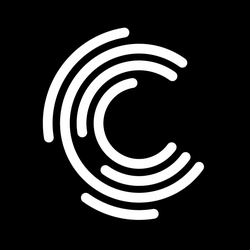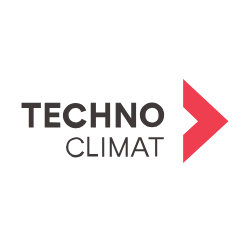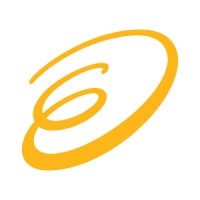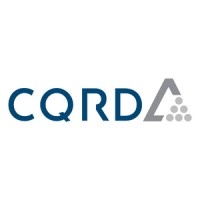
MTRIC — PSO Large companies
At a glance
- Maximum amount : 1,500,000 $
- Minimum amount : 200,000 $
- Up to 40% of project cost
- Open Date : November 27, 2023
- Closing date : February 16, 2024
- Manufacturing
- Quebec
- For-profit business
- All revenue ranges
- 249 employees maximum
- Canadians
Overview
Get a grant of up to $500,000 to cover up to 20% of eligible costs if your SME partners with a research centre on a project involving primary to tertiary metal processing.
Activities funded
Yes, there are specific projects or activities eligible for this grant. Generally, these pertain to metallurgical transformation, advanced metallic product design, ecological footprint reduction, and digital innovation.
- Development of new transformation processes and improvement of existing ones including automation and Industry 4.0.
- Design of advanced metallic products such as new alloys and improved product fabrication.
- Reduction of ecological footprint through emission and waste management, energy recovery, and eco-friendly processes.
- Digital innovation in production processes, including automation, 3D printing, data modeling, and artificial intelligence.
Eligibility
The grant eligibility criteria primarily include being a regular member of CRITM, involvement in the metallic transformation sector, and specific project associations with eligible metals.
- All project partners must become members of CRITM for the duration of the project.
- The project must be linked to one or more of CRITM's research axes.
- The funding request must be made by a recognized research institution.
- Contributions from other planned governmental partners are considered public contributions.
- Industrial partners must provide a letter of commitment indicating their cash and in-kind contributions and anticipated benefits.
- Projects can involve Canadian or foreign companies as a secondary enterprise.
- Projects must relate to the metallic transformation sector, involving metals such as steel, aluminum, or those listed as critical and strategic minerals by the Quebec Government.
- SMEs must have their headquarters in Quebec, with employees or subcontractors mainly working from Quebec, and have 249 employees or less worldwide.
- Enterprises must provide a copy of their francization certificate or proof of steps taken with the Quebec Office of the French Language (OQLF) and have a French website.
Who is eligible?
Yes, there are eligible types of companies for this grant. Eligible types of companies must be members of the CRITM and operate within specific sectors of the metal transformation industry.
- Extraction and Concentration
- Primary Production
- First, Second, and Third Transformation
- Finished Products
- Metal Recycling
Who is not eligible
Yes, there are certain types of companies that are not eligible for this grant.
- Companies controlled directly or indirectly by a government, municipal entity, or state-owned corporation.
- Companies listed as ineligible for public contracts.
- Companies under protection from the Companies' Creditors Arrangement Act or the Bankruptcy and Insolvency Act.
- Companies directly or indirectly controlled (50% or more) by other existing companies or organizations unless validated by CRITM.
Eligible expenses
Yes, there are eligible expenses for this grant. They include a variety of costs directly linked to the research projects.
- Salaries, treatment, and benefits
- Student scholarships
- Material, consumables, and supplies
- Purchase or rental of equipment (max 25% of total expenses)
- CRITM's management fees
- Operational expenses for intellectual property
- Professional fees
- Travel and accommodation expenses
- Monetary compensations for project participation
- Knowledge dissemination expenses
- Subcontracting expenses
Eligible geographic areas
The eligible geographic zones for this grant include all regions within Quebec. Projects involving enterprises outside Quebec can also qualify, provided a secondary enterprise based in Quebec is involved in the project.
- Regions within Quebec
- Enterprises outside Quebec (as secondary enterprise)
Selection criteria
Yes, there are evaluation and selection criteria for this grant. The projects are evaluated based on criteria related to the degree of innovation, partner capabilities, team quality, technological and commercial impacts, student training, and economic benefits for Quebec.
- The degree of innovation of the product/process: the project must present a clearly innovative aspect compared to what currently exists.
- The capacity of the partners to complete the project, including the level of commitment of the companies in carrying out the project and their financial involvement.
- The quality of the research team and the public-private partnership (level and complementarity of expertise).
- The technological and commercial impacts anticipated for the partner companies.
- The training of students and highly qualified personnel.
- The other economic benefits for Quebec.
How to apply
Make sure you are eligible
- Check that your organization is a member of CRITM.
- Confirm that your project aligns with one or more research axes of CRITM.
Gather the documentation
- Prepare a detailed project proposal according to CRITM's guidelines.
- Collect letters of commitment from industrial partners indicating their contributions.
- Obtain the necessary certificates, such as the francization certificate or proof of steps taken with the OQLF.
Complete the application form
- Fill out the official application form provided by CRITM.
- Detail the project financing, ensuring that it meets the financial standards for SMEs or large enterprises as applicable.
Submit the request
Examination of the request
Notification of the decision
- Wait for the notification from CRITM regarding the approval or rejection of your project.
- If approved, follow any additional instructions provided for the implementation of the project.
Implementation of the project and reporting
- Implement the project according to the approved plan.
- Submit regular progress reports and final results to CRITM as required.
Additional information
- CRITM reserves the right to modify the project call calendar partially or entirely.
- A project submission form must be completed to propose a project.
- Projects must align with one or more CRITM research axes.
- A summary guide is available for applicants.
Contacts
Frequently Asked Questions about the MTRIC — PSO Large companies Program
What is the MTRIC — PSO Large companies?
How much funding can be received?
What is the deadline to apply?
Who is eligible for the MTRIC — PSO Large companies program?
What expenses are eligible under MTRIC — PSO Large companies?
Who can I contact for more information about the MTRIC — PSO Large companies?
Where is the MTRIC — PSO Large companies available?
More programs like this

ÉcoPerformance — Recommissioning of building mechanical systems
Gouvernement du Québec
GHG Challenge Program - Industry
Environnement Québec (MELCC)
Economic development program to help revitalize territories (DEPART)
Investissement Québec (IQ)
Innovative Projects Program
Hydro-Québec
Technoclimat
Environnement Québec (MELCC)
Financial support to assess your energy use Hydro Quebec
Hydro-Québec
Enbridge Gas Quebec — Custom-made project
Enbridge Gas Quebec
Additional deduction for transportation costs for manufacturing SMEs
Revenu Québec
MTRIC — PARTENAR-IA — Industry
Metal Transformation Research and Innovation Consortium (MTRIC)